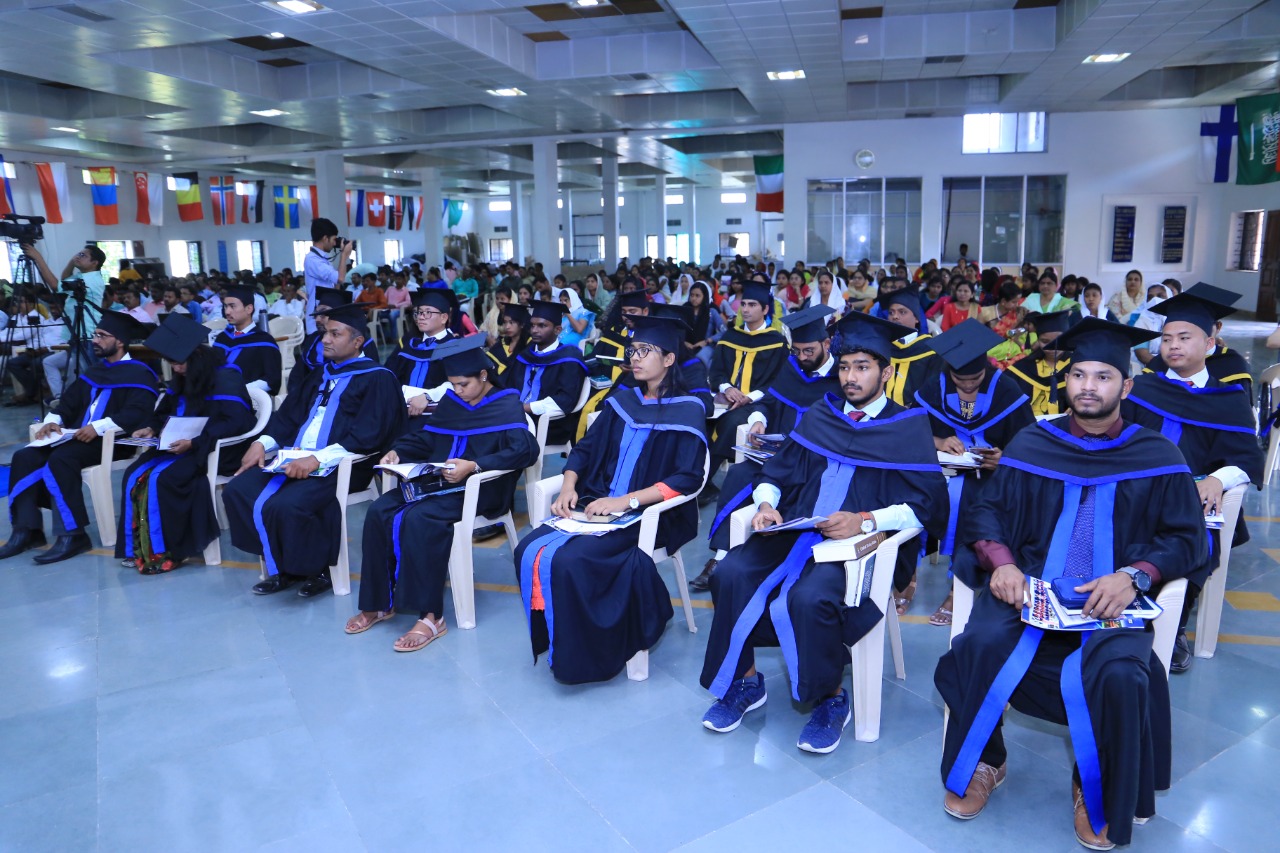
DOCTOR OF MINISTRY (MISSIOLOGY & COUNSELING)
Purpose, Nature, and Graduate Profile:
The Professional Doctorate in an aspect of Christian ministry is a doctoral-level qualification which utilizes the professional and ministerial practice of the candidate as a part of the structured process of learning. The practice-based setting of the student is a central component of the research project. In the professional doctorate, the student works from both theory and practice, toward enhanced competencies for both the individual and the wider profession. The holder of a Professional Doctorate in Christian ministry is, therefore, a researching professional, extending the boundaries of reflective practice in an area of Christian ministry.
Doctoral study within an evangelical Christian institution is founded on an understanding of knowledge that is more than academic. In the Bible, acquiring and exercising wisdom involves a combination of faith, reason, and action. It requires: right belief and committed trust in the living God (“the fear of the LORD is the first principle of wisdom”), creative and humble use of the rationality God has granted to humans made in his own image, and appropriate living in the world to reflect God’s calling and to participate in God’s mission. Doctoral study, therefore, pursued on such a foundation, will be confessional, rational and missional. For a Christian, doctoral study is one dimension of what it means to “love the LORD your God with all your heart and mind and soul and strength.”
Within a framework of Christian identity and commitment, the professional doctoral qualification will be awarded to students who are church members, are recognized and experienced practitioners in Christian ministry, are commended for faithful discipleship and recognized leadership, and who have demonstrated the following qualities through appropriate examination and peer-level professional review. These qualities are as follows: (i) comprehensive understanding, having demonstrated a breadth of systematic understanding of a field of study at the forefront of professional practice in an aspect of Christian ministry, mastery of the skills and methods of research, and applied reflective-practice in a specific ministry context; (ii) critical skills, faithfully exercised, having demonstrated their capacity for independent evaluation of primary and secondary source materials, and practice-based research (Students must show ability to maintain an appropriate critical distance from their own professional context and capacity to integrate academic knowledge and professional practice at the doctoral level, and show a commitment to exercise such skills on the foundation of biblical faithfulness to Jesus Christ and his Church.); (iii) serious inquiry with integrity, having demonstrated the ability to conceive, design, and implement a substantial project of research into, and critical analysis of, current and previous professional practice, and ability to generate mutual critique with thinkers and practitioners from outside their immediate ministry context, resulting in a sustained and coherent thesis, and to do so with Christian and scholarly integrity; (iv) creative and original contribution, having produced, as a result of such disciplined inquiry, a creative and original contribution that - a) extends the frontiers of knowledge, b) generates new perspectives, approaches or paradigms in professional practice, and c) enhances the integration between theological reflection and Christian ministry practice, and so merits publication in national or international professional literature; (v) contextual relevance, having shown their capacity, in the course of their doctoral program and in their expectation of its future potential, for biblically-informed critical engagement and enhanced and applied professional practice within the realities of their cultural contexts; (vi) ability to communicate about their area of expertise to peer-level academic and professional audiences (Where appropriate this communication should be to non-specialists in local Christian communities and the wider society in culturally relevant ways, including their mother tongue, for example through teaching, preaching or writing.); (vii) missional impact, having shown that they are committed, able, and can be expected to use the fruit of their doctoral study, and the skills it has given them and the opportunities it affords them, to promote the kingdom of God and advance the mission of the church--both local and global--through reformulation of theory and of professional practice in transformational service and Christ-like leadership, to the glory of God.
With the foregoing in mind, ATA-accredited programs granting the Professional Doctorate degree are designed to prepare the graduates for a qualitatively enriched practice of ministry and to function as leaders in denominational and parachurch agencies, and as Christian ministry trainers. A professional doctoral program will also include sophisticated academic and research components, involving seminars, comprehensive examination and dissertation. Completion of the degree program will include the substantial achievement of a graduate profile that is aligned to the seven qualities mentioned above. A full-time student should be able to complete this program within three years.
Entrance Qualifications:
Successful completion of a Master of Divinity degree or its equivalent from a recognized college with a B+ grade or a high second division
Five years of experience in ministry is required.
Graduation Requirements:
Appropriate demonstration of the expected graduate profile for this award, including the seven qualities mentioned in “Purpose, Nature, and Graduate Profile” section above
Successful completion of 45 credit units, inclusive of project or thesis of 50,000 words
An assessment of character and spiritual development that meets set requirements/standards and, ideally, some training in education and adult learning
Library and Learning Resources: Adequate and relevant resources, including access to appropriate online resources and databases, major periodicals, and research journals, as well as access to other libraries or facilities, are available to all students to support each area of the curriculum. These resources enable students to attain a comprehensive and systematic breadth of understanding in each of the subjects taught and in each of the disciplines available for dissertation research.